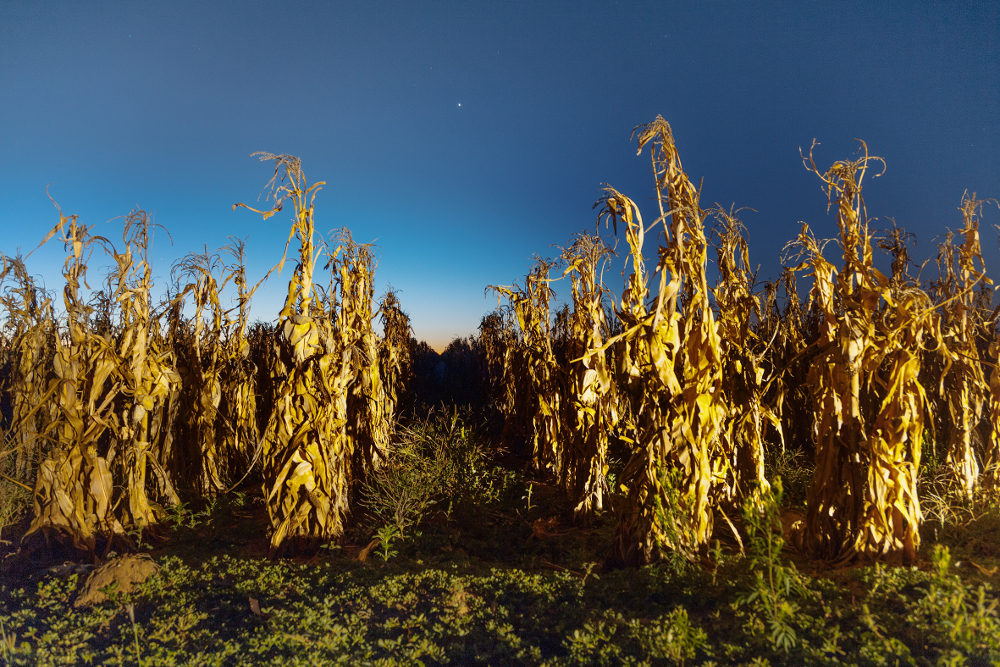Minister of Agriculture Senzeni Zokwana can make comforting noises but has little say on land matters
Everyone wants land reform in South Africa, or so went the discussion at the annual Nampo Harvest Festival in the Free State, held this week: farmers, farm workers, the government, political parties, financiers, consumers and voters.
The money is available, to the tune of R15-billion from private lenders over the next 15 years, plus whatever the government chooses to add out of the national budget or through state lenders such as the Industrial Development Corporation.
There are black people who want to farm and white people who want to teach them how to do so profitably, as well as any number of organisations to provide education, advice and support.
There are even large tracts of viable but fallow land in government hands or under communal control, which can be put into production tomorrow without expropriation and the attendant difficult question of compensation. Or emerging black farmers could lease land as a way to dip their toes into the water with neither huge capital requirements nor the delays inherent in even an uncontested transfer of land.
So why is land reform caught in a cauldron of ever-changing plans and heated political argument?
“I don’t think anybody [disagrees] that there has [to] be land reform in a manner that makes for comfortableness,” Agriculture Minister Senzeni Zokwana told the representatives of farmers on Tuesday, to nods of agreement all round.
Ally of white farmers
In his role as minister, Zokwana is the ally of white farmers, helping secure export deals for their produce, arguing for infrastructure to support their production and, as he is keen to tell them, putting food security above other considerations in government debates.
Wearing a different hat, Zokwana is the face of the enemy for some. He is also the national chair of the South African Communist Party, which in turn is the home of an ideology of dispossession.
“It is not about land; it is about ownership,” Agri-Sector Unity Forum chair Japie Grobler told the Nampo event this week.
In his view, Grobler said, reaching back to the language of the communist scares of the 1980s, the question of land reform camouflaged a “total onslaught on ownership”.
“The other day it was mineral rights … The question is: What comes next? Shares on the JSE? Part of your home?” he pondered.
Compromise
Yet land reform is not hampered by the vast difference between Grobler’s politics of individualism, shared by many white farmers, and Zokwana’s organisational creed that property is theft.
Both have already accepted compromise: Zokwana because unchecked dispossession of farmers could bring hunger; Grobler because he believes transformation in farming is inevitable and must be managed to minimise harm. The gap between them should be unbridgeable, but pragmatism closed it long ago. There may even be a hint of trust between the two.

Minister Senzeni Zokwana is putting food security above other considerations in government debates. (Gustav Butlex, M&G)
What should be a fundamental divide between workers and farmers is, likewise, far less stark than it has the right to be.
Many farmers are still prisoners of an archaic approach that “continues to regard trade unions as the enemy”, Nosey Pieterse, the president of the Black Association of the Wine and Spirit Industry (Bawsi) and the general secretary of the Bawsi Agricultural Workers’ Union of South Africa, told the conference.
Pieterse remains something of a bogeyman for that industry, having been central to protests on the pay of seasonal workers that at times crippled the De Doorns area.
But Pieterse does not hold farmers solely responsible for an anti-union stance. He blames consultants who advise those farmers on labour relations and their “gogga maak vir baba bang stories [infantile scare stories]” through which such consultants “create their own employment”.
Collective bargaining
For their part, the representatives of farmers maintain that those farmers are not opposed to unionisation, because collective bargaining would actually make their lives easier. Farm-by-farm wage negotiations on an annual basis are cumbersome, they hold, and do not provide the longer-term certainty on wages that business craves.
Although these groups and individuals who should be poles apart have found one another approachable and agreeable, the same can apparently not be said of Cabinet ministers.
By his own admission this week, Zokwana has little to no say on land reform. That is the domain of Gugile Nkwinti, the minister of rural development and land reform.
For farmers, Nkwinti is a shadowy presence who occasionally lobs a grenade into the discussion – new proposed ceilings on land ownership, or a suggestion that farmers should give half their land to their workers – and then disappears again.
Nobody is quite sure where these pronouncements originate; farmer representatives say they were never canvassed on the ideas before they were made public, and unionist Pieterse says his members don’t even want to own land, but just want decent working conditions.
The best Zokwana could do this week, when challenged on Nkwinti’s approach, was to admit he could see “there is still anger”, to express trust that resistance to policy would crumble once those policies were properly explained, and to invoke ANC secretary general Gwede Mantashe.
“The best person who can call us together is the [secretary general] of the ANC,” Zokwana said, of a planned meeting at which Mantashe would be called on to address “discomfort about some pronouncements”.
But the same would be true if there was, say, a disagreement between two different government departments on how land should be redistributed: the best thing is to “go back to the organisation that deploys us”, and discuss the matter at ANC headquarters Luthuli House.